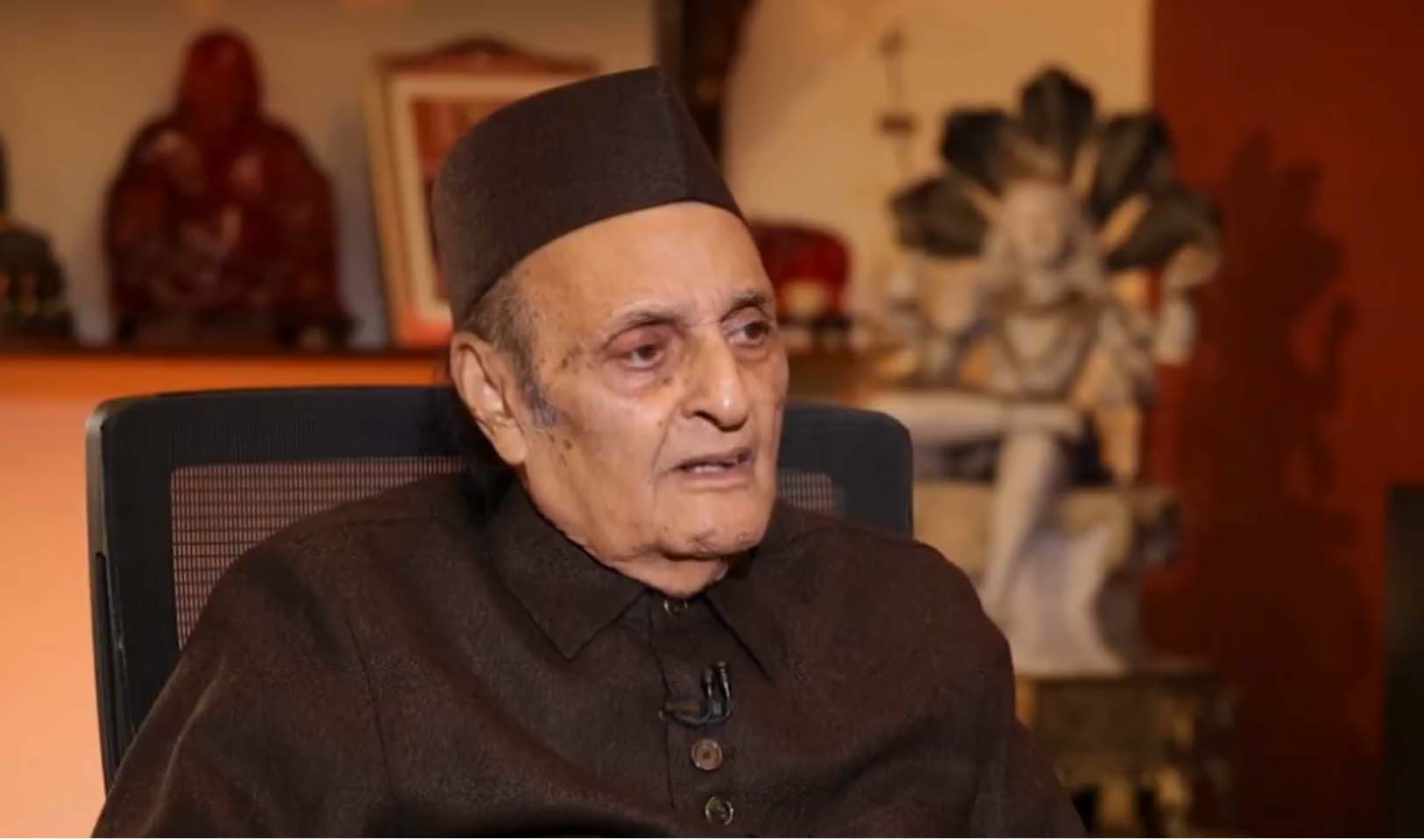NEW DELHI, Jan 4: Karan Singh, a prominent leader of the Congress party and seasoned politician, has called for the immediate restoration of statehood to Jammu and Kashmir, stating that the region’s current status represents an “unacceptable” reduction of the “crown of India.”
Join Daily Excelsior on WhatsApp for the Latest News
In a recent PTI Videos interview, Singh, who has served as a Rajya Sabha MP three times and was the Sadr-i-Riyasat (constitutional head) of the former state, expressed his concerns regarding the aftermath of the abrogation of Article 370 of the Constitution.
He emphasized that prior to this constitutional amendment, the conversation revolved around the degree of autonomy that should be granted to the state.
“The whole dynamic shifted following the abrogation of (Article) 370,” Singh remarked.
He asserted that changing Jammu and Kashmir’s status to a union territory is a regressive step compared to its former status and is “unacceptable.”
Singh mentioned that a former Indian ambassador to the US noted that Jammu and Kashmir now ranks behind states such as Himachal Pradesh and Haryana in terms of administrative efficiency.
“(Hum) toh mukut hai Hindustan ke (We are the crown of India),” he declared.
When asked about restoring statehood, Singh replied, “Absolutely. Full statehood is essential.”
He also advocated for local land ownership laws akin to those in Himachal Pradesh.
“These are the domiciliary laws that we seek,” he stated.
Despite his concerns, Singh acknowledged that not all consequences of the abrogation of Article 370 are negative.
He pointed out that the abrogation eliminated a law that deprived women in the state of property rights if they married outside, and it enabled many migrants from Pakistan to cast their votes.
“So I maintain a nuanced perspective. There are indeed positive aspects to consider,” he remarked.
In the past, Singh had proposed the trifurcation of the former state of Jammu and Kashmir, suggesting that Jammu merge with Himachal Pradesh, Ladakh become a union territory, and Kashmir remain a state.
“At that time, everyone criticized me, and the proposal was dismissed. Today, the situation is different. Jammu has developed its own identity,” he observed.
When asked if he has any similar radical proposals now, he said, “Currently, the only radical proposal I have is to restore statehood along with domiciliary laws to protect the state’s residents and to genuinely strive for a fair equilibrium between the Jammu and Kashmir regions.”
He emphasized that achieving this balance requires fostering a peaceful relationship between the Centre and the Jammu and Kashmir government.
The abrogation of Article 370 on August 5, 2019, revoked Jammu and Kashmir’s special status and restructured it into two union territories—J&K and Ladakh. While J&K has a legislative assembly with limited powers, Ladakh functions without one.
In December 2023, the Supreme Court upheld the Centre’s decision but emphasized the need for prompt statehood restoration.
During the interview, Singh reflected on his relationship with the Abdullah family, particularly Sheikh Mohammed Abdullah, the first chief minister of Jammu and Kashmir.
He characterized Sheikh Abdullah as a “remarkable” leader whose influence shaped the region’s political landscape, but acknowledged the complexities in their relationship due to historical tensions between the monarchy and the emerging democratic forces.
Recalling the formation of Jammu and Kashmir’s first assembly, Singh revealed that his father, Maharaja Hari Singh, and several loyalists advised against his acceptance of the role of ‘Sadr-i-Riyasat’ due to perceived slights by Sheikh Abdullah towards the Dogras and the Maharaja.
“That is where the tension began in a way. It was an inevitable outcome of politics. I recognized that the monarchy had lost its significance and that the future lay in democracy. I wished to be part of that democratic process,” he explained.
Singh credited National Conference (NC) president Farooq Abdullah for re-entering him into politics after a 12-year break.
“Following my victories in four elections from Udhampur, I chose to change my constituency to Jammu, where I lost. After that, I withdrew from politics for 12 years… he brought me back into the fold,” he remarked.
He also reminisced about the NC’s support in his election to the Rajya Sabha.
Singh described Chief Minister Omar Abdullah, the third generation of the Abdullah family to serve in that role, as a “balanced individual” with the potential for a successful political trajectory.
“I believe he has a bright future ahead. I hope he does because, you know, he’s getting a second chance now,” the former minister concluded. (PTI)


Leave a Reply